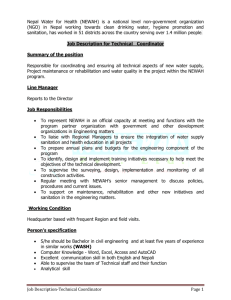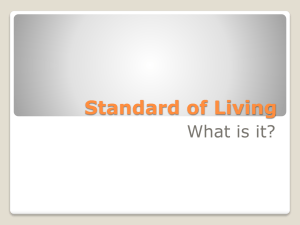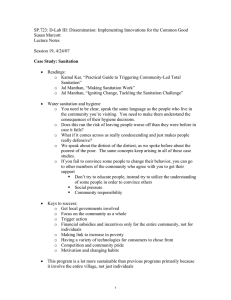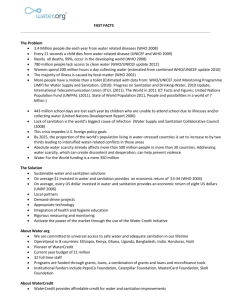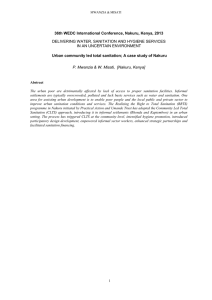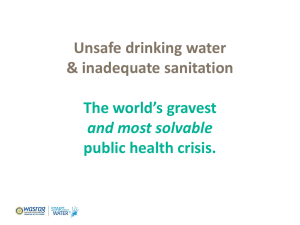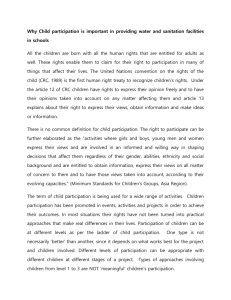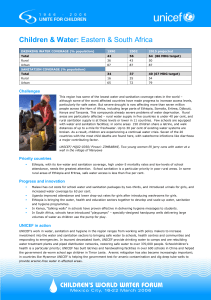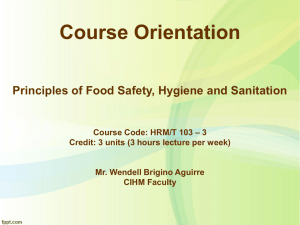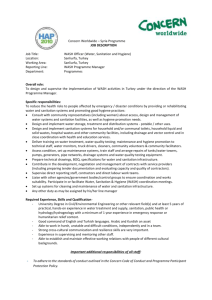ESE 560 - SEAS - University of Pennsylvania
advertisement
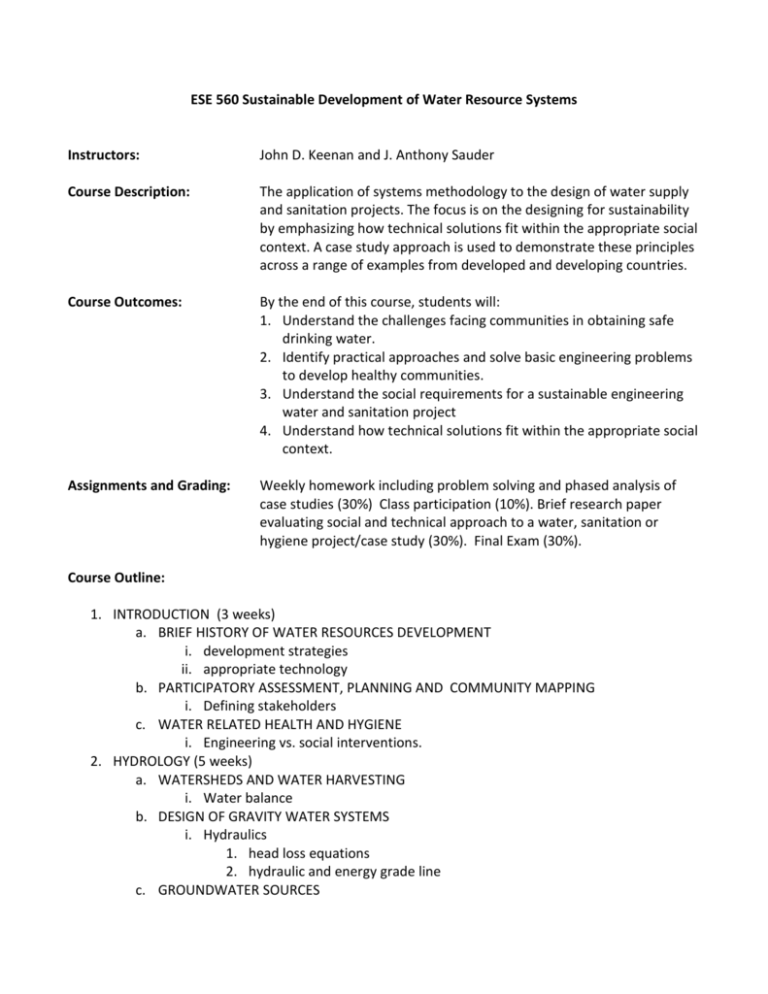
ESE 560 Sustainable Development of Water Resource Systems Instructors: John D. Keenan and J. Anthony Sauder Course Description: The application of systems methodology to the design of water supply and sanitation projects. The focus is on the designing for sustainability by emphasizing how technical solutions fit within the appropriate social context. A case study approach is used to demonstrate these principles across a range of examples from developed and developing countries. Course Outcomes: By the end of this course, students will: 1. Understand the challenges facing communities in obtaining safe drinking water. 2. Identify practical approaches and solve basic engineering problems to develop healthy communities. 3. Understand the social requirements for a sustainable engineering water and sanitation project 4. Understand how technical solutions fit within the appropriate social context. Assignments and Grading: Weekly homework including problem solving and phased analysis of case studies (30%) Class participation (10%). Brief research paper evaluating social and technical approach to a water, sanitation or hygiene project/case study (30%). Final Exam (30%). Course Outline: 1. INTRODUCTION (3 weeks) a. BRIEF HISTORY OF WATER RESOURCES DEVELOPMENT i. development strategies ii. appropriate technology b. PARTICIPATORY ASSESSMENT, PLANNING AND COMMUNITY MAPPING i. Defining stakeholders c. WATER RELATED HEALTH AND HYGIENE i. Engineering vs. social interventions. 2. HYDROLOGY (5 weeks) a. WATERSHEDS AND WATER HARVESTING i. Water balance b. DESIGN OF GRAVITY WATER SYSTEMS i. Hydraulics 1. head loss equations 2. hydraulic and energy grade line c. GROUNDWATER SOURCES 3. 4. 5. 6. 7. d. SURFACE WATER SOURCES e. PUMPING SYSTEMS i. appropriate technologies, pump curves and efficiencies. WATER TREATMENT (1 week) SANITATION AND WASTE DISPOSAL (1 week) SUSTAINABILITY (1 week) a. OPERATION AND MAINTENACE b. LIFE CYCLE ISSUES FIELD ENGINEERING TECHNIQUES (1 week) STUDENT PRESENTATIONS (1 week) Texts: Field Guide in Environmental Engineering for Development Workers:Water, Sanitation, Indoor Air. James R. Mihelcic, Elizabeth A. Myre, Lauren M. Fry, Linda D. Phillips, Brian D. Barkdoll to be published by ASCE in 2009. Environmental Health Engineering in the Tropics: An Introductory Text by Sandy Cairncross and Richard Feachem, 3rd ed. To be available soon. Healthy villages: A guide for communities and community health by Howard G., WEDC, et. al, WHO 2002. Available online: http://www.who.int/water_sanitation_health/hygiene/settings/healthvillages/en/ Engineering for Sustainable Development: Guiding Principles. The Royal Academy of Engineering, 2005. Available online: http://www.raeng.org.uk/education/vps/pdf/Engineering_for_Sustainable_Development.pdf World Development Report 2003: Sustainable Development in a Dynamic World (Paperback) by World Bank. Available online: http://econ.worldbank.org/external/default/main?menuPK=477727&pagePK=64167702&piPK=641676 76&theSitePK=477711 DRAFT Water Resources Guidelines by EWB-USA, D, Garbely, M. Reiner and W. Wilson; available in Word format from EWB at http://app1.ewbusa.org/downloads/Guidelines/Water%20Guidelines_Final.pdf DRAFT Concrete Mixes Guidelines by EWB-USA 2005, Rollins, Chris et. al. available online http://app1.ewb-usa.org/downloads/Guidelines/ConcreteGuidlines.pdf Toward Better Programming, A Water Handbook, Water, Environment and Sanitation Technical Guidelines Series No. 2, by UNICEF 1999; Available online: http://www.unicef.org/wes/Wat_e.pdf

